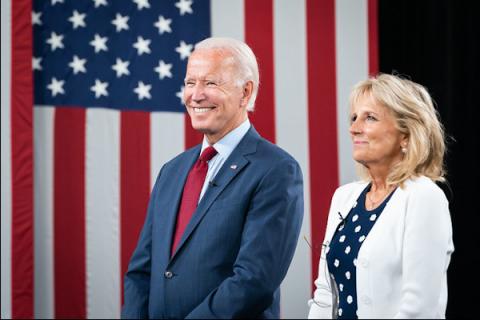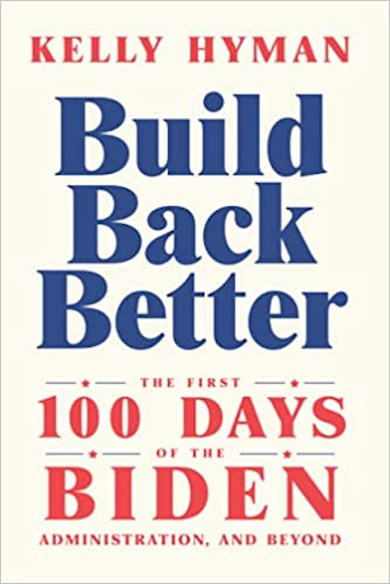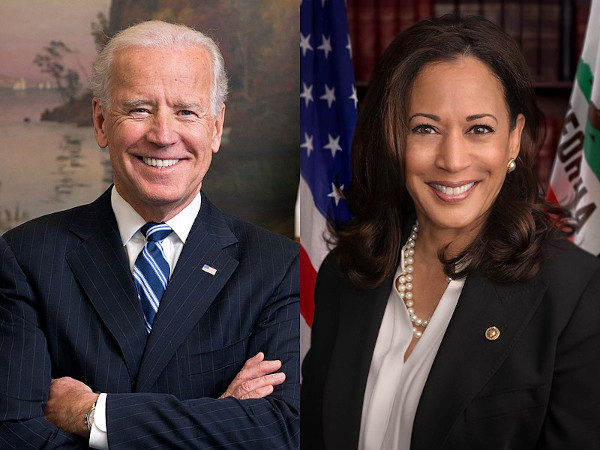President Biden Promises More Successful Diplomacy and Foreign Policy

Following the tragedy of World War II, the United States took on a world leadership role, doing everything possible to guard against future tyranny and human misery. We did not do this alone. Until recently, the U.S. has always sought to create and support enduring alliances, to form partnerships of common interest against threats to our security, our hope of prosperity, and the health of our planet.
After four years of a narrow, isolationist foreign policy, combined with a reluctance to push back on Vladimir Putin and other autocratic regimes, the international community is hoping for a re-engaged United States—one that is willing to be an international leader once again.

Promises
Biden has promised to lead with diplomacy once again and to repair relationships with U.S. allies, particularly the NATO alliance. After four years of Trump’s erratic foreign policies, European leaders are confident in President Biden’s leadership but also believe that the U.S. political system needs to undergo major changes or be reformed altogether.
Biden has maintained that the restoration of America’s reputation is to lead by example, both domestically and in concert with our allies.
“The United States must lead not just with the example of power, but the power of our example,” he said.
National Security Adviser Jake Sullivan also said, “The most profound national security challenge facing the United States is getting our own house in order, is domestic renewal.”
For Biden and his team, the ultimate purpose of foreign policy is to make life better for our own citizens and to respect the rights of other countries to do the same. What he rejects is Trump’s nationalism and isolationism when it comes to international trade and the give-and-take of global alliances.
What this means is that to rebuild American global power, the United States must start by getting the pandemic under control, which means recognizing its international nature and strengthening the crushed U.S. economy with investments in technology and infrastructure. This, coupled with a substantive recommitment to traditional allies and a firm-but-fair stance with our adversaries, will help the world believe that we still deserve the title of superpower.

Accomplishments
Biden’s first one hundred days have been dominated by the COVID-19 crisis and the push to restore American infrastructure. That said, he has sent a strong signal—strengthening old alliances and taking tougher stances on aggressor nations—by appointing a seasoned diplomat, Anthony Blinken, to head the State Department.
To underscore his focus on re-establishing alliances, Biden’s first announced overseas trip will be the G7 summit in Cornwall, England. There has been some anxiety in the U.K. over Biden’s Irish heritage and whose “side” he is likely to favor in the Brexit debacle, but Biden’s peacemaking efforts during the Reagan administration tell a different story. Many expect him to lead by diplomacy although he has taken some tough stances internationally. With advance notice to Turkish President Edrogan, Biden officially acknowledged that the 1915 killings of Armenians in Turkey was, in fact, genocide, a move that no previous president had been willing to make.
Some of Biden’s “tough but fair” moves have involved U.S. adversaries, notably the Russian Federation. In April 2021, he ordered new economic sanctions on Russia in response to its election interference, aggression against Ukraine, offering bounties on U.S. troops, and their cyberattacks on U.S. government networks.
Regarding China, Biden described his relationship with President Xi Jinping as “cordial” but acknowledged concerns over rights abuses and expects to compete with China on multiple levels such as trade, technology, and military power. He has also addressed China’s growing dominance in Iran, warning the Xi government that the U.S. will enforce Trump administration sanctions on Iranian oil—which China is increasingly buying. While Biden expects no changes in Xi, he strongly believes that to confront China internationally, we must first fix our own country and call on our allies more often.
Under Biden, American policy toward North Korea will focus on working with allies to pressure the Kim Jong Un government toward denuclearization. Although Biden considers North Korea a major foreign policy issue, he also said he would not pursue “personal diplomacy” with Kim. Such an approach should only happen if it was part of an actual strategy that advanced the prospects for denuclearization.
The Middle East presents a long list of complex challenges, beginning with Iran and its nuclear and regional ambitions. Early on, Biden declared he wants to find a way to bring Iran back to the bargaining table, but it will be a hard sell politically and will make Israel nervous. However, Biden has also shown his willingness to respond to Iranian aggression by authorizing surgical strikes against Iranian-backed militias in Syria. So we can expect continuing low-level conflict as the U.S. and Iran compete for influence while trying to find a nuclear solution that would benefit both.
Challenges in Middle East policy will persist long after Biden’s first one hundred days, but he has already taken initiatives that his predecessors would not. On April 14, he announced that, in conjunction with NATO forces, the United States would withdraw its forces from Afghanistan by September 11, 2021. He has also signaled to traditional Middle Eastern allies that they can still be friends with the U.S., but that such dealings will require more concessions to American interests—and more accountability for their behavior on human rights.
This is an excerpt from Kelly Hyman’s new book, Build Back Better: The First 100 Days of the Biden Administration, and Beyond (Amplify Publishing). It’s published here with permission.
Author Bio:
Kelly Hyman is an attorney, television commentator, legal analyst, and Democratic strategist. She has appeared on BBC, ABC, NBC LX, CBS, NBC, Law & Crime, CourtTV, Sky News, I24News, Fox News, and numerous local affiliates.
Hyman was born in Miami Beach. She was raised by a single mother in New York City and in Southern California. There, she became a child actor, a voice actor, and later appeared in television shows, The Young and the Restless and Getting There, as well as off-Broadway in New York and in a movie with Batman star Adam West.
After earning her law degree from the University of Florida College of Law, Kelly served as president of the Federal Bar, Palm Beach Chapter, volunteered for President Obama’s election and reelection, and served as a poll watcher to protect voter rights during the presidential election.
Highbrow Magazine
Image Sources:
--WhiteHouse.gov (Wikimedia.org, Creative Commons)
--Adam Schultz (Biden For President, Flickr, Creative Commons)
--Amplify Publishing































































































































































































































































































































